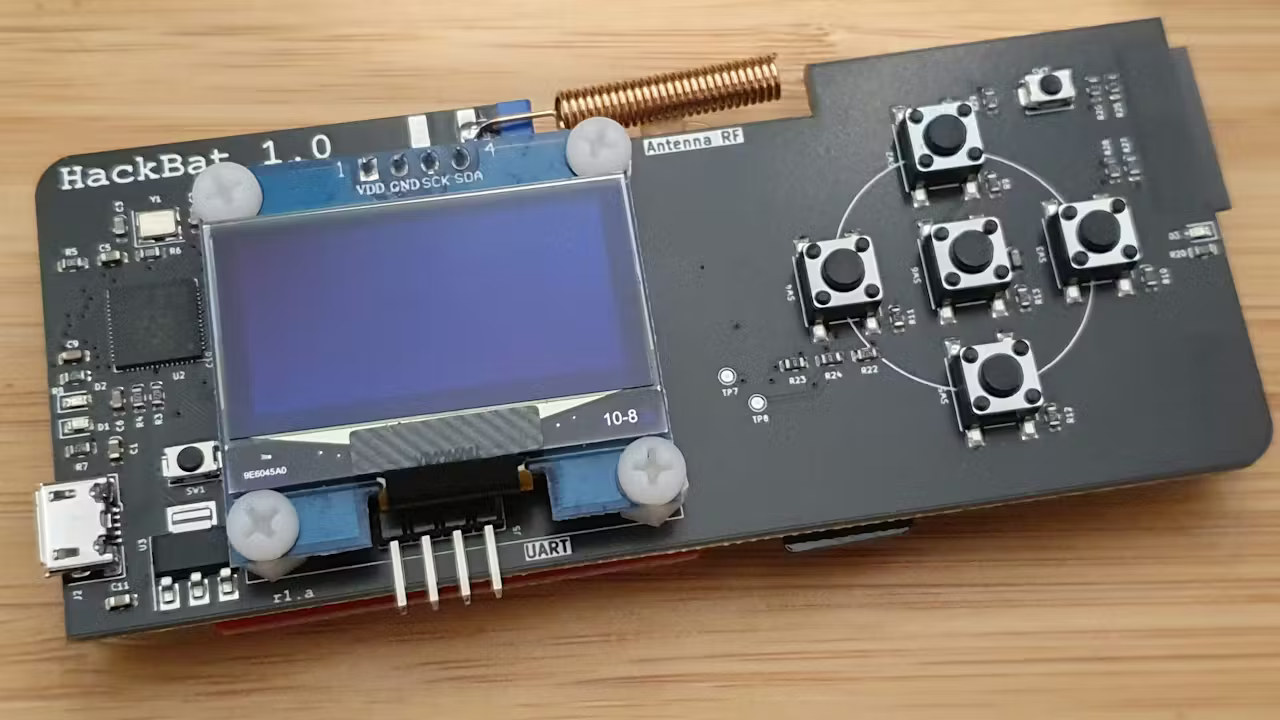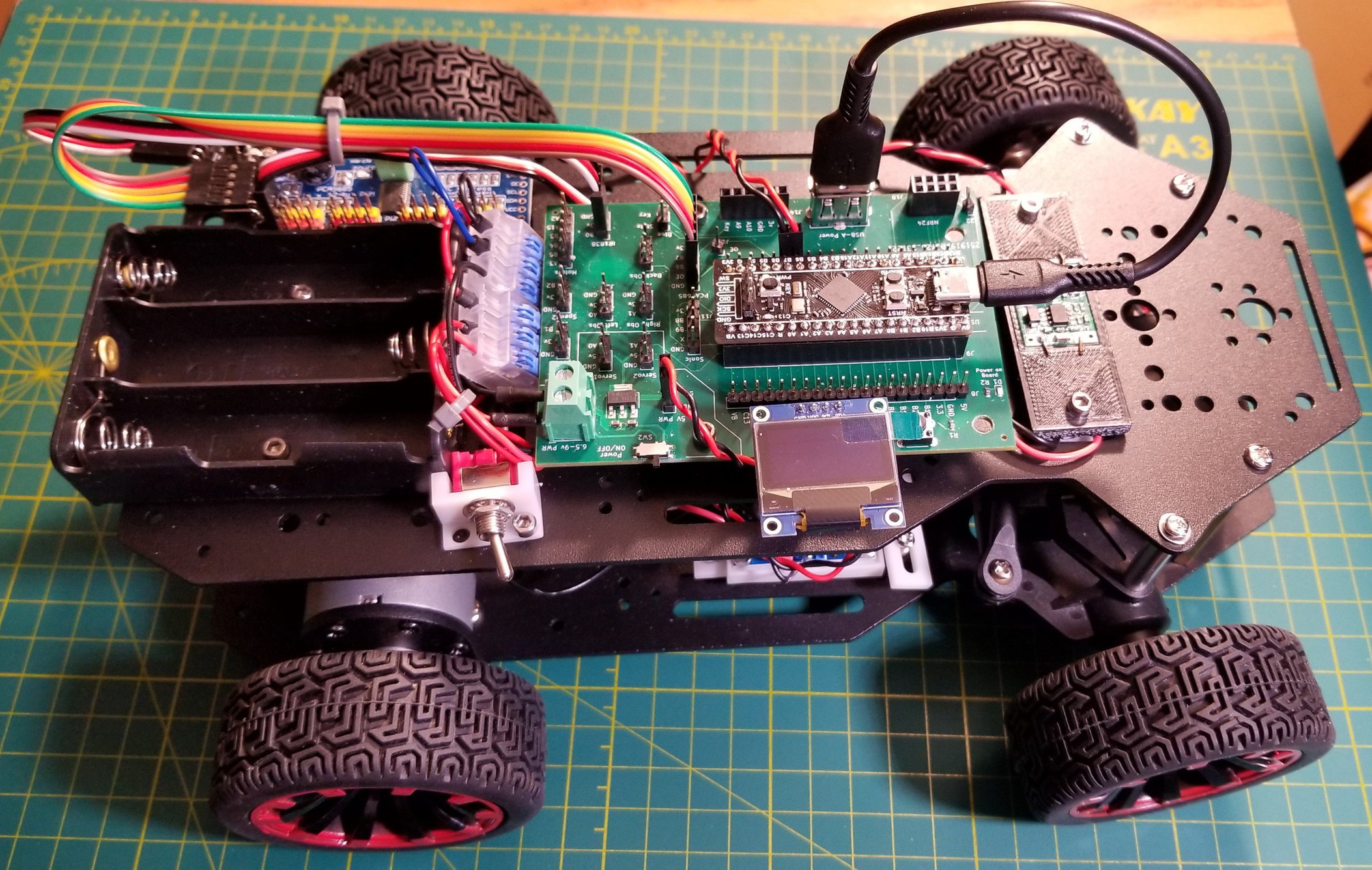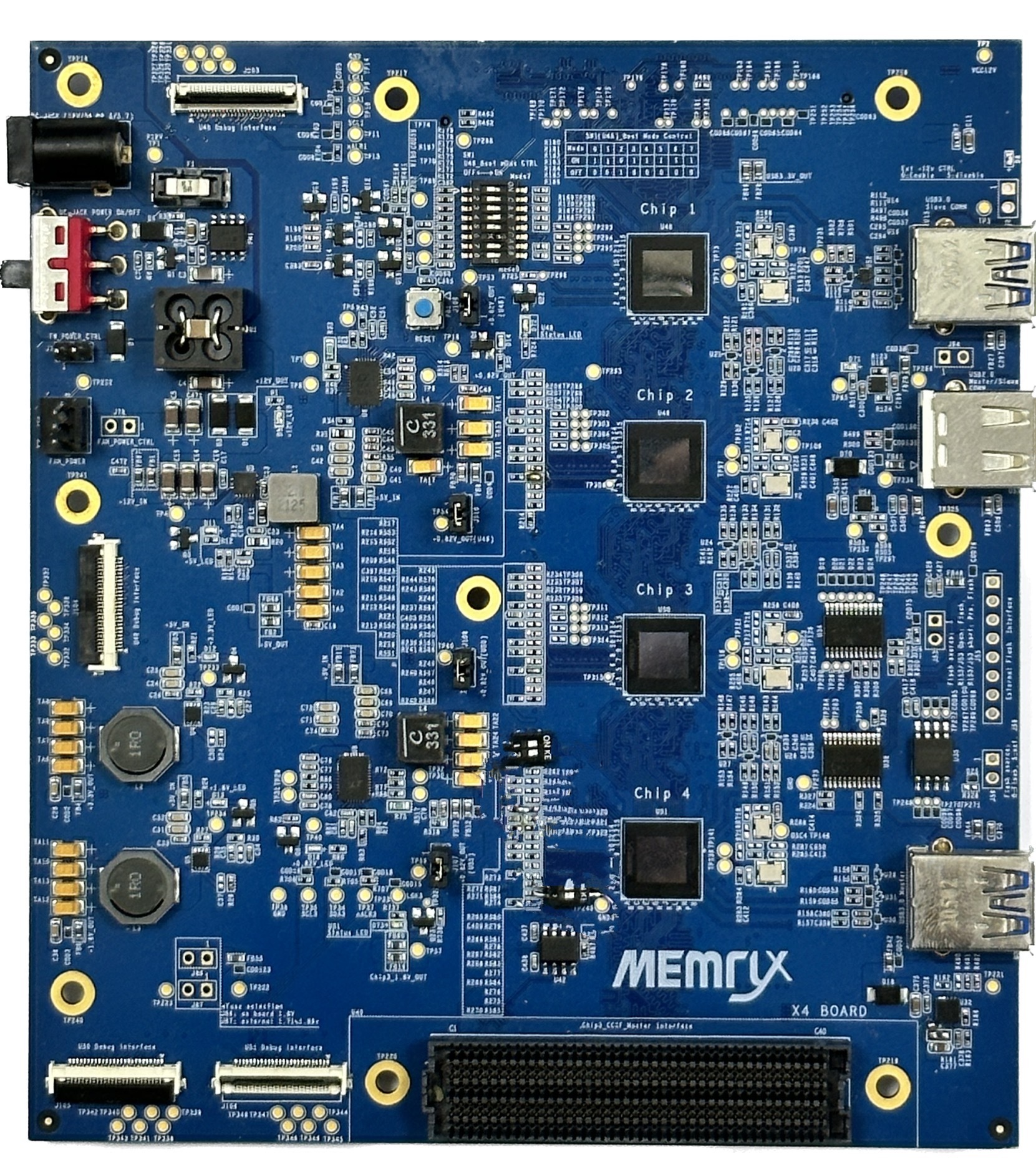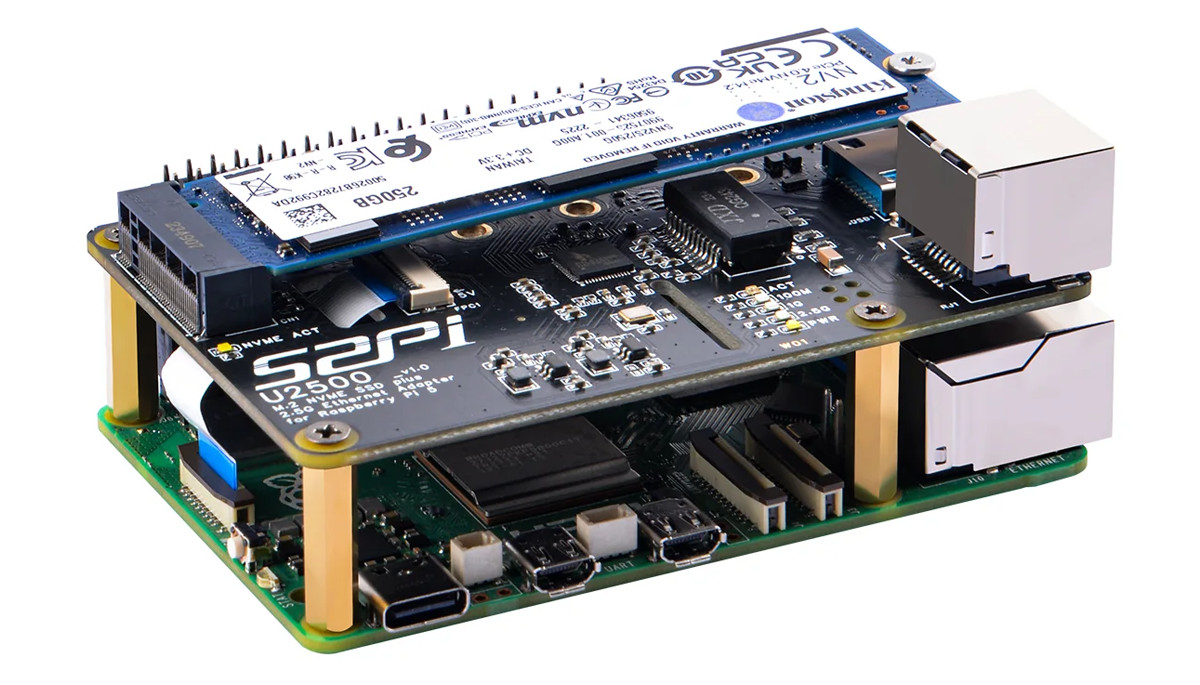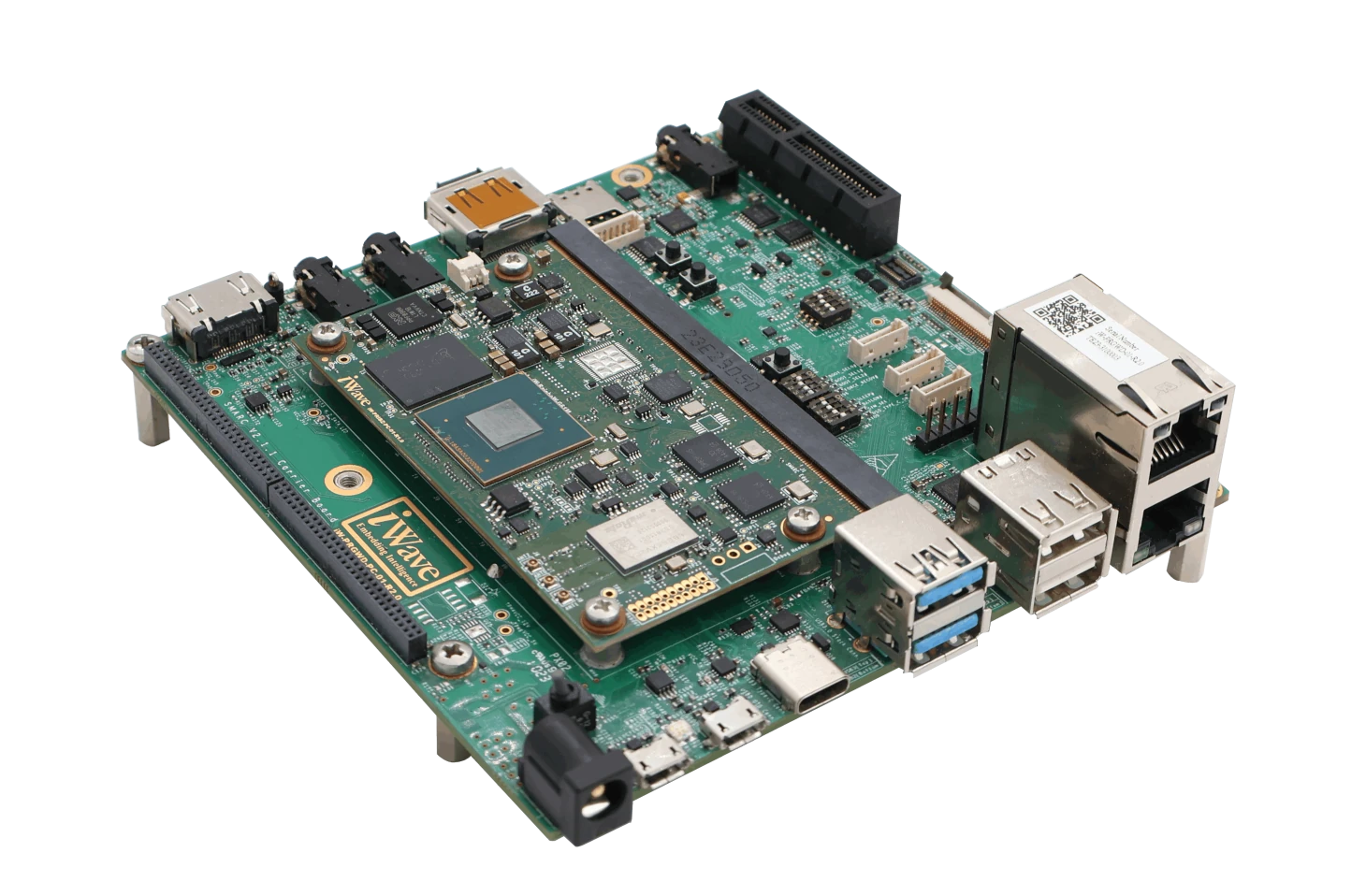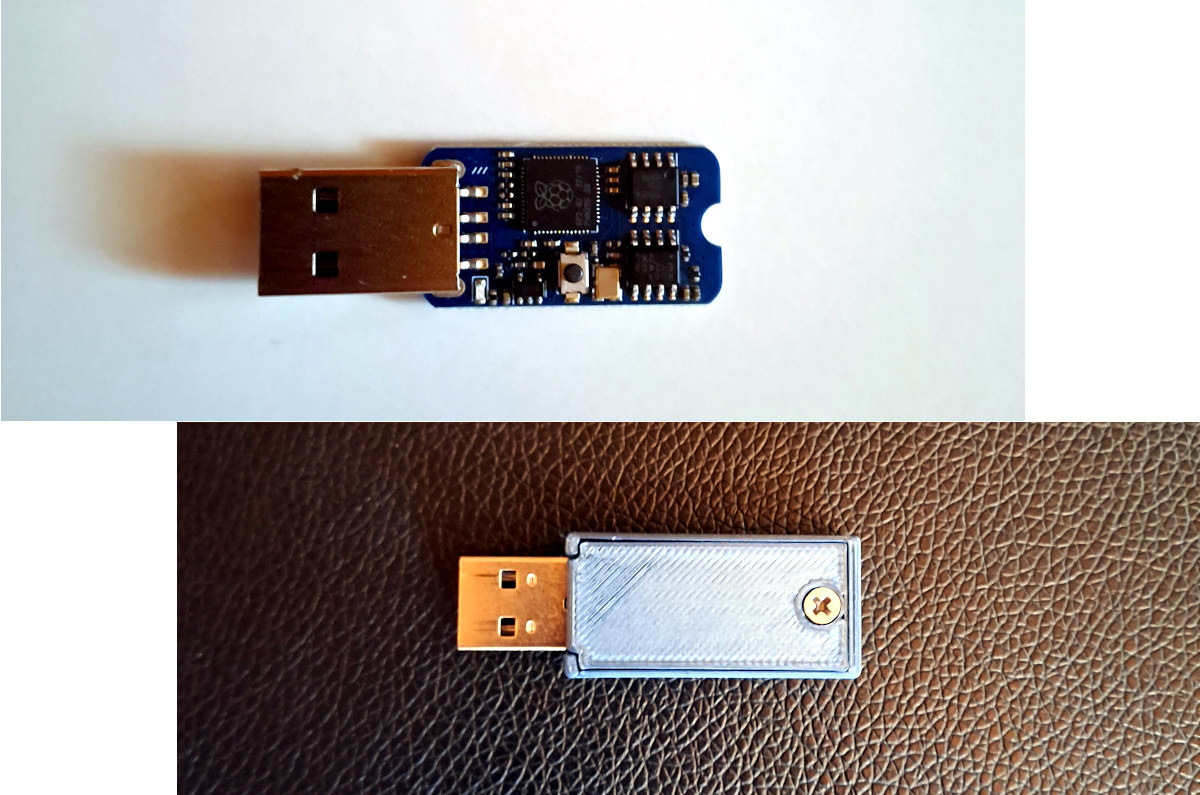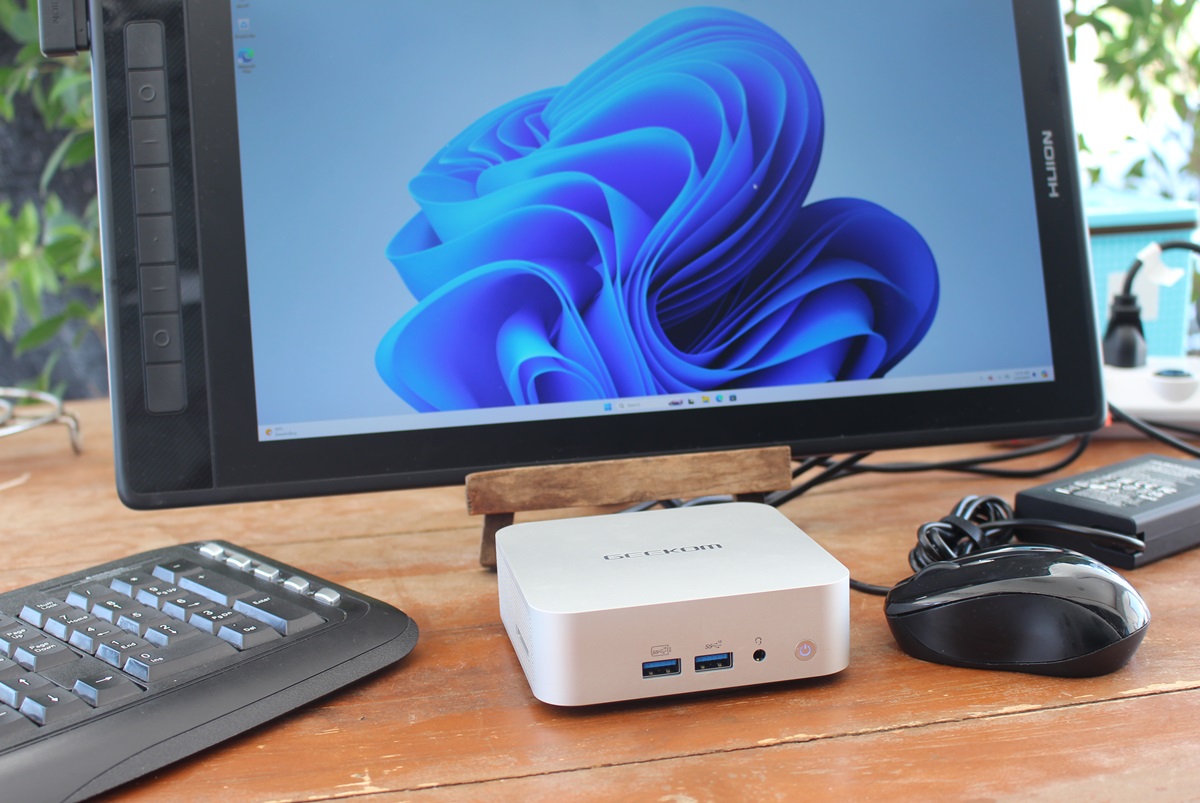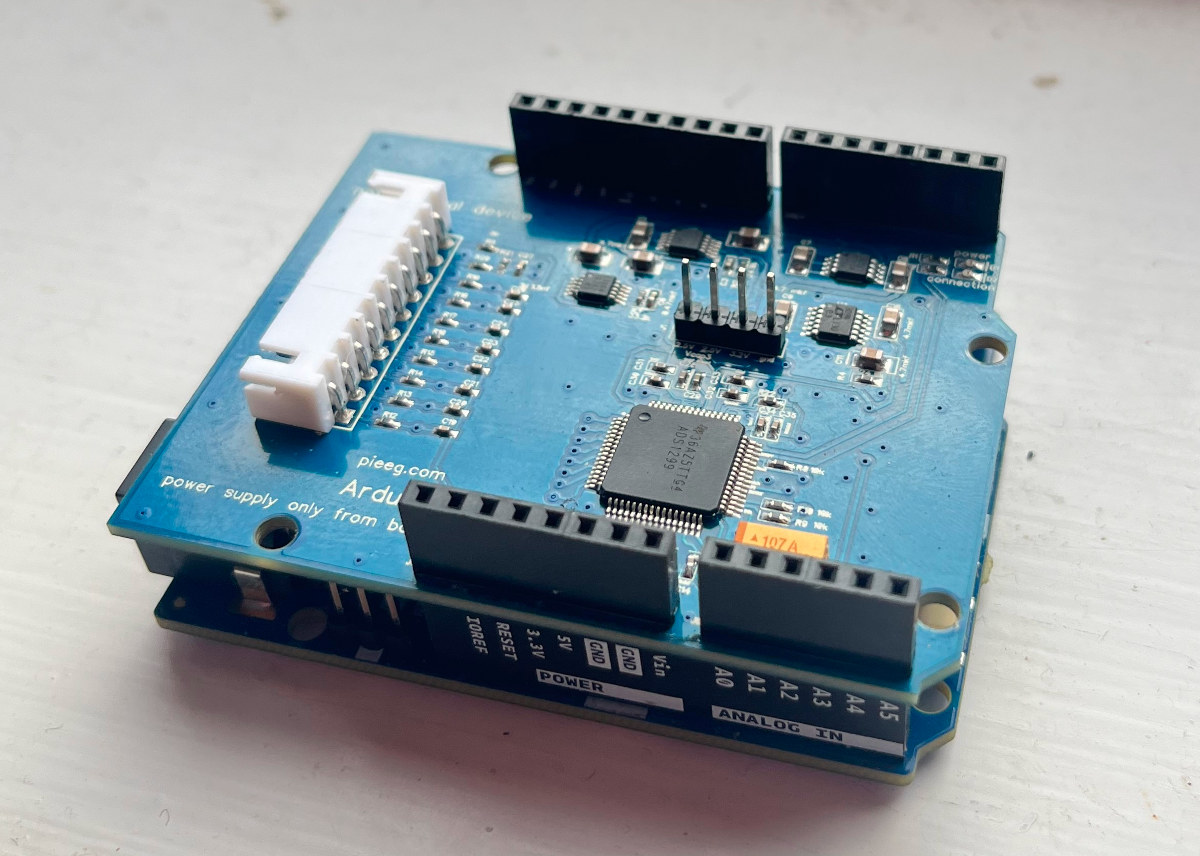HackBat is an open-source hardware pen-testing device designed for hackers and makers and equipped with a Raspberry Pi RP2040 microcontroller, an ESP8266 WiFi module, a sub-GHz RF transceiver, NFC, an OLED display, and more… It’s basically a DIY alternative to the popular Flipper Zero wireless hacking tool, that you can produce and assemble yourself. The Flipper Zero was the victim of its own success with the Canadian government (wrongly) claiming it could easily be used for car theft and planning to ban it (status still unclear right now), so Flipper Zero alternatives such as the M1 multitool device got some traction as backup solutions with some extra features. But any closed-source device could eventually be banned, something that’s close to impossible for an open-source hardware device like the HackBat although policymakers could still decide to impose heavy fines if they wanted to make this type of device illegal… HackBat key […]
Easily build a robot car with the Car Base Board for the STM32F411 “Black Pill” board
The Car Base Board from Applying Microcontroller Solutions is a modular platform for building robot car projects powered by the WeAct Studio Black Pill development board. The Black Pill board is an upgrade to the “Blue Pill 2” board and features the STM32F411CEU6 microcontroller running at 100MHz with 512 KB of flash memory, 128 KB SRAM, and a USB Type-C port for power and programming. The Care Base Board printed circuit board is a base controller that takes hardware expansions such as wireless modules, servos, and sensors to monitor and control a robot car. The onboard headers provide a straightforward way to wire these connections and help prevent a tangled mess (rat’s nest) of wires. The PCB’s design makes it easy to use widely-available, “generic” devices and boards in development and to power all of them with batteries. It also allows the developer to select their favorite wireless communication device. […]
MemryX MX3 edge AI accelerator delivers up to 5 TOPS, is offered in die, package, and M.2 and mPCIe modules
Jean-Luc noted the MemryX MX3 edge AI accelerator module while covering the DeGirum ORCA M.2 and USB Edge AI accelerators last month, so today, we’ll have a look at this AI chip and corresponding modules that run computer vision neural networks using common frameworks such as TensorFlow, TensorFlow Lite, ONNX, PyTorch, and Keras. MemryX MX3 Specifications MemryX hasn’t disclosed much performance stats about this chip. All we know is it offers more than 5 TFLOPs. The listed specifications include: Bfloat16 activations Batch = 1 Weights: 4, 8, and 16-bit ~10M parameters stored on-die Host interfaces – PCIe Gen 3 I/O and/or USB 2.0/3.x Power consumption – ~1.0W 1-click compilation for the MX-SDK when mapping neural networks that have multiple layers Under the hood, the MX3 features MemryX Compute Engines (MCE) which are tightly coupled with at-memory computing. This design creates a native, proprietary dataflow architecture that utilizes up to 70% […]
52Pi W01 U2500 HAT adds 2.5GbE and NVMe SSD support to Raspberry Pi 5 SBC
Designed specifically for the Raspberry Pi 5 SBC, the 52Pi W01 U2500 HAT offers support for M.2 M-key NVMe SSDs (2230, 2242, 2260, and 2280) along with a 2.5GbE (2.5 Gbps Ethernet port) using a Realtek RTL8156BG chipset. The most interesting thing about this board is its connectivity – the M.2 SSD is driven directly by the Raspberry Pi’s PCIe port that supports Gen2 & Gen3 standards. However, the 2.5Gbps Ethernet port requires a connection to one of the Pi’s USB ports using a specialized USB-to-USB adapter included by 52Pi. Previously, we have seen 52Pi come up with very innovative and interesting HATs for Raspberry Pi including 52Pi P02 PCIe expansion board, 52Pi NVdigi Expansion Board, 52Pi CM4 Router Board, and many other products. If you want to try something new with your Raspberry Pi, feel free to check those out. 52Pi W01 U2500 2.5Gbps Ethernet + NVMe HAT specifications: […]
NXP i.MX 95 SMARC 2.1 system-on-modules – ADLINK LEC-IMX95 and iWave iW-RainboW-G61M
Several companies have unveiled SMARC 2.1 compliant system-on-modules powered by the NXP i.MX 95 AI SoC, and today we’ll look at the ADLINK LEC-IMX95 and iWave Systems iW-RainboW-G61M and related development/evaluation kits. The NXP i.MX 95 SoC was first unveiled at CES 2023 with up to six Cortex-A55 application cores, a Cortex-M33 real-time core, and a low-power Cortex-M7 core, as well as an eIQ Neutron NPU for machine learning applications. Since then a few companies have unveiled evaluation kits and system-on-modules such as the Toradex Titan evaluation kit or the Variscite DART-MX95 SoM, but none of those were compliant with a SoM standard, but at least two SMARC 2.1 system-on-modules equipped with the NXP i.MX 95 processor have been introduced. ADLINK LEC-IMX95 Specifications: SoC – NXP i.MX 95 CPU Up to 6x Arm Cortex-A55 application cores clocked at 2.0 GHz with 32K I-cache and D-cache, 64KB L2 cache, and 512KB […]
Blaustahl USB storage device features 8KB FRAM with up to 200 years of data retention
Machdyne’s Blaustahl is a USB storage device equipped with a Raspberry Pi RP2040 MCU and 8KB of FRAM with a potential lifespan of over 200 years and designed for long-term storage of text up to about 8,000 characters. FRAM (Ferroelectric RAM) has been around for years delivering ultra-low power consumption, faster writes, and ultra-long write endurance (one million billion read/write cycles) compared to EEPROM or NOR flash, but the cost is quite higher and it’s mostly used in applications that require ultra-low power consumption and non-volatile storage write capabilities such as data logging, sensor networks, batteryless applications. The Blaustahl storage device and USB text editor is one of those. Blaustahl speciications: Microcontroller – Raspberry Pi RP2040 dual-core Cortex-M0 processor at 133MHz and 264kB RAM. Storage 4MB (32Mbit) NOR flash for firmware 8KB (64Kbit) FRAM (Fujitsu MB85RS64) Lifespan – 95 years @ +55°C, over 200 years @ +35°C Endurance – 10^12 […]
GEEKOM A8 (AMD Ryzen 9 8945HS) AI mini PC review – Part 1: Specs, unboxing, teardown, and first boot
GEEKOM A8 is an AI mini PC based on the powerful AMD Ryzen 9 8945HS (or Ryzen 7 8845HS) AI processor with AMD Radeon 780M Graphics, up to 64GB DDR5 memory, up to 2TB M.2 NVMe SSD support for up to four display up to 8K resolution, and comes preloaded with Windows 11 Pro operating system. The mini PC is equipped with two HDMI 2.1 ports, two USB-C ports with DisplayPort Alt mode, 4x USB 3.2 Type-A ports, 2.5GbE, a WiFi 6E and Bluetooth 5.3 module, and a stereo headset jack. GEEKOM sent us a sample of the A8 Mini PC with an AMD Ryzen 9 8945HS 8-core/16-thread processor, 32GB DDR5, and a 2TB M.2 NVMe SSD with Windows 11 Pro for review this time. We’ll start by listing some specifications, doing an unboxing, going through a teardown, and booting Windows 11. In the second and third parts of the […]
ardEEG shield works with Arduino UNO R4 WiFi for biosignals measurement
PiEEG has launched the ardEEG shield specially designed for the Arduino UNO R4 WiFi and capable of measuring biosignals such as those used in electroencephalography (EEG), electromyography (EMG), and electrocardiography (ECG). PiEEG, led by Ildar Rakhmatulin, Research Associate at Heriot-Watt University in Edinburgh, launched the PiEEG shield for Raspberry Pi to enable brain-computer interfaces last year, and now the company has been working on the equivalent design for Arduino with the ardEEG shield equipped with eight channel taking input from wet or dry electrodes. ardEEG shield key features and specifications ADC – Texas Instruments ADS1299 Analog-to-Digital Converter for biopotential measurements Supported board – Arduino UNO R4 WiFi 8 channels for connecting wet or dry electrodes (Electrodes are positioned according to the International 10-20 system) Host interface – Arduino headers with SPI used for data transfer with a frequency from 250 SPS to 16 kSPS and a resolution of 24 bits […]


